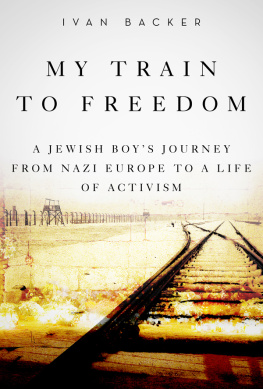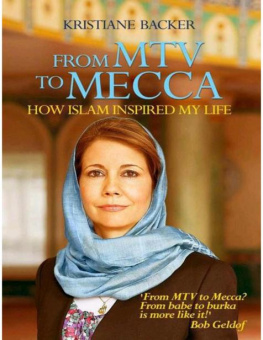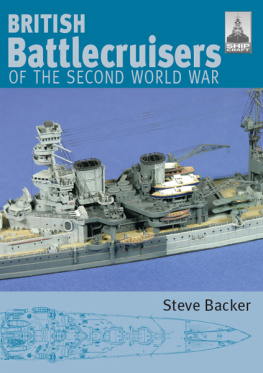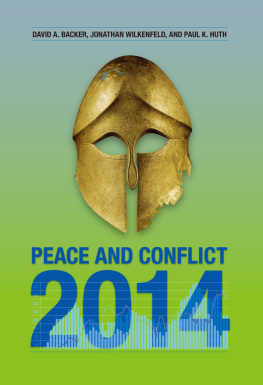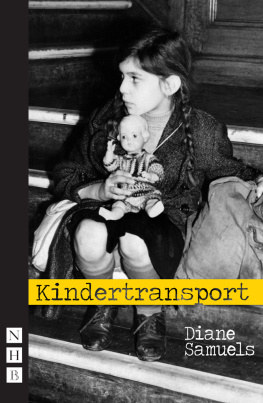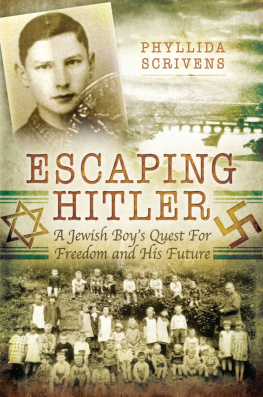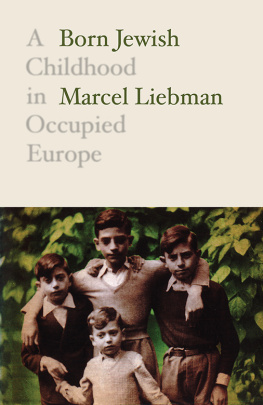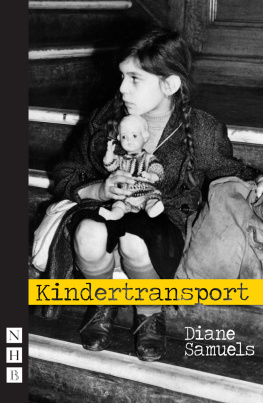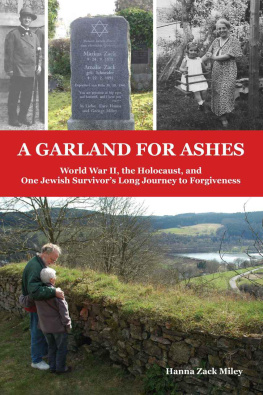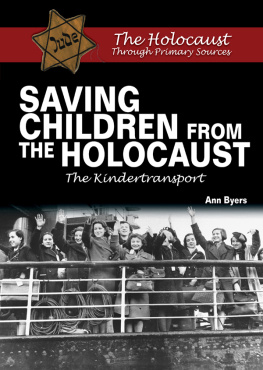Copyright 2016 by Ivan A. Backer
All rights reserved. No part of this book may be reproduced in any manner without the express written consent of the publisher, except in the case of brief excerpts in critical reviews or articles. All inquiries should be addressed to Skyhorse Publishing, 307 West 36th Street, 11th Floor, New York, NY 10018.
Skyhorse Publishing books may be purchased in bulk at special discounts for sales promotion, corporate gifts, fund-raising, or educational purposes. Special editions can also be created to specifications. For details, contact the Special Sales Department, Skyhorse Publishing, 307 West 36th Street, 11th Floor, New York, NY 10018 or .
Skyhorse and Skyhorse Publishing are registered trademarks of Skyhorse Publishing, Inc., a Delaware corporation.
Visit our website at www.skyhorsepublishing.com.
10 9 8 7 6 5 4 3 2 1
Library of Congress Cataloging-in-Publication Data is available on file.
Cover design by Brian Peterson
ISBN: 978-1-63450-604-5
Ebook ISBN: 978-1-63450-975-6
Printed in the United States of America
Activism is my rent for living on the planet.
Alice Walker
For Nicholas Winton
without whom I would not be alive
For Paula
without whom this memoir would not have been written
TABLE OF CONTENTS

PROLOGUE

S IR NICHOLAS WINTON saved my life in 1939, but I didnt know it until much later.
Winton was a young London stockbroker in 1938 when a friend invited him to Prague to see the aftermath of the German takeover of Czech borderlands. Winton realized that Hitlers ambitions would soon engulf Czechoslovakia and that many people, including children, were likely to perish. He responded to the Nazi threat by organizing a massive relief effort utilizing trains and boats to save young lives. Wintons Kindertransports successfully whisked 669 children away from impending danger. I was one of the children he rescued.
More than sixty years elapsed before I became aware of my savior. Today, Winton is known as Britains Schindler. An award-winning 2011 documentary about his life, Nickys Family , has been distributed internationally. In 2014, 60 Minutes aired a report about Wintons life that featured several clips from the documentary.
Although I did not know many of the details about my escape until recently, I always knew it was my immense good fortune that I was saved. I was no more deserving than others. At all times I carry with me the reminder that I am very lucky to have been spared from Holocaust brutality.
This memoir recounts how my survival influenced the course of my life.
PREFACE

I HAVE BEEN called upon frequently these past few years to share my story as a Kindertransport escapee from the Holocaust. Suggestions were made that I should record my recollections in a memoir. I put the idea on the back burner until fairly recently when I noticed that my generation is now often referred to as eldersa step in aging beyond senior citizens, which I had become used to hearing. I realized that preserving what those of us who were a part of that history have to say has become an urgent priority.
The blue folder I always take with me when I tell my story to an audience is something of a security blanket. It sits on my side table ready for me to grab on my way out the door. I check that it contains the typed notes I wont consult but always bring along. I will start my talk with a description of my happy boyhood in Prague, then turn to what I remember about my escape in 1939 as a ten-year-old boy aboard a Kindertransport train. Included in the folder is a copy of my poem titled Trains, which I have been reading aloud at the end of my several talks this past year. Underneath the master copy are several extras in case someone asks for a copy of the poem, which occasionally happens. The DVD of Nickys Family, a documentary about the great humanitarian Nicholas Winton, who organized Kindertransport trains from Prague, has already been delivered to the group sponsoring my presentation and will be screened for the audience prior to my introduction. As I walk through my foyer to leave by the front door, I pass the large framed poster presented to me in 2012 by the West Hartford Jewish Community Center, where I gave one of my earliest talks to one of the largest and most appreciative audiences. Moving through my condo into that space each day, I often glance at the oversized photograph in the framea round-faced gentleman with white hair and a slight twinkle in his eye. The picture is of Nicholas Winton: rescuer of 669 doomed Czech children, including me, who would otherwise have been caught in Holocaust terror. As an escapee I am eternally grateful to this man who saved my life.
In the last few years, I have begun to write vignettes about my boyhood before and after I arrived by train, then boat, in England from Prague as a refugee. I looked back at decisions I made as a young man seeking to establish a life in a new country, America. The fate I had been spared as a child is always with me, and I ponder my worthiness; why was I saved? My thoughts and reflections as an older adult started to knit together and, in combination with my early notes and vignettes, formed a cohesive storymy story. Over the years, Ive been in contact with just a few others who had also been on those Kindertransports from Prague, but neither they nor others whod made the journey had, as far as I could find, published any personal accounts of living in America. I undertook the task of writing this book to document my memories and also to add another voice in admiration of the courageous moral stance taken by Nicholas Winton, who, working with only a few other volunteers, including his mother, Barbara, managed in the short window of time he had to transport so many of us children from Czechoslovakia to safety.
Nicholas Wintons story overarches my own. He accomplished the Kindertransport rescue operation selflessly and with a humbleness that is not found today, a time when the slightest accomplishment is considered newsworthy. The last of Wintons Kindertransport trains did not leave Prague as scheduled in September 1939 because the occupying Nazis closed the Czech borders; the children on that train presumably perished, as did most Jews in Czechoslovakia. After Winton married, he didnt tell his wife about saving Czech children during the war. She accidentally discovered a scrapbook in their attic in 1987almost fifty years after the eventthat documented his wartime work with children, families, adoptive homes in England, and governments. She shared her finding with a television producer who publicized the details on a TV program.
The most dramatic moment in the program came after Winton was identified from the stage and recognized for his life-saving Kindertransports that brought Czech children to safety in 1939. On cue, everyone who had ridden as a child on one of Wintons trains to freedom stood up. Taken by surprise, Nicholas Winton turned around to the silent crowd behind him. Like most in the studio that night, his eyes welled up with tears, and he took out a handkerchief to prevent them from rolling down his cheeks. Unfortunately, I was not present because the organizers of the event did not know how to get in touch with me. I heard that most in attendance lived in England.

